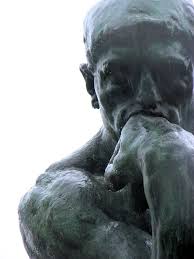In one of the many Leadership Development Programmes (LDP) in which I have the privilege to be involved, it is a requirement that I set the participants an assignment. No problem there as it is what would be expected. However, given the nature of the work done in this particular LDP, I have chosen to invite the participants to engage in a reflective piece of work as their assignment.
The instruction is simple: select any aspect of what you’ve experienced in the past few days on this course, and reflect on its significance for you. No further detail or instruction is given.
 Reflection is perhaps the most neglected and most misunderstood discipline of leadership. It is a core discipline that ought to be part and parcel of leadership practice – an essential habit for anyone in leadership to cultivate. Meg Wheatley makes the point that reflection is the bridge between experiences and making them ‘your own’. In my experience leaders find the tough work that is reflection difficult to do and often are in a corporate culture that places little or no value on such a discipline or behaviour. We measure, reward and pride ourselves in our ‘doing’ and so when it comes to the practice of leadership reflection – well this is the antithesis of all that we have come to regard as important. It is a great pity for nothing can be further from the truth…but I digress.
Reflection is perhaps the most neglected and most misunderstood discipline of leadership. It is a core discipline that ought to be part and parcel of leadership practice – an essential habit for anyone in leadership to cultivate. Meg Wheatley makes the point that reflection is the bridge between experiences and making them ‘your own’. In my experience leaders find the tough work that is reflection difficult to do and often are in a corporate culture that places little or no value on such a discipline or behaviour. We measure, reward and pride ourselves in our ‘doing’ and so when it comes to the practice of leadership reflection – well this is the antithesis of all that we have come to regard as important. It is a great pity for nothing can be further from the truth…but I digress.
So, the assignment is set and care taken to explain what is expected and how best, for the many uninitiated, to go about such a daunting task. Then I await the responses. As the papers role in I am always amazed at the general tenor that underpins the exercise. “Life changing”, “most important work I have done in years”, “why has it taken so long for me to do this kind of work” would be some of the comments that reflect what is the general response to the assignment.
I have participants who take the opportunity to reflect on some of their deepest valleys in life – burying a child, the death of a spouse or parent, divorce, growing up in grinding poverty, abusive parents and so it goes on. Reading these papers often makes me feel like removing my shoes as I am ‘standing on holy ground’. It is an immense privilege to have such personal narratives shared and the insights and leadership lessons that are made are often profound.
But I have to give them a grade. How does one grade such stories?
But that is what is expected in academia. That is what is expected in an LDP. You grade, you mark, you compete with the person next to you; you strive to come top of the class. But when it comes to the deep work of reflection these mind-sets make no sense. In fact not only do they make no sense, they often do harm.
In the development of leaders, when it comes to the character ethic, the emphasis on emotional intelligence, and the growth of self-awareness, certain things cannot and should not be graded. But try making the business schools see this! And so this is why, as the leadership agenda shifts in the context of a changing world and the new world of work, so many current ‘successful’ models will fail to deliver. Such institutions should be teaching leaders to think, to adapt, to reflect, to unlearn and relearn, to question, to pause and to explore inwards as well as outwards – but they don’t. The tools that will deliver on many of these things remain too edgy, too ‘unscientific’ and yes, are not measurable.
So we stumble on afraid to change the curriculum, afraid to make mistakes and sometimes afraid to stand-up to the client who doesn’t always know best what they need. We continue as we were only with smarter technology, slicker programmes and more subject experts, yet, in spite of such efforts and investment, we fail to see any meaningful change in both mind-set and behaviour.
At some point it will come crashing down and I will say, “but I warned you”.



Hi Keith
I feel your pain!
Well written and thought provoking article.
Kind Regards
Buzz